Are you trying to decide between buying a house or a townhouse? It can be hard to know the differences between the two and why one might be better suited for your needs than the other.
In this article, we will discuss what sets townhouses apart from traditional houses and help you determine which option is best for you.
We’ll look at factors such as cost, maintenance requirements, size, location, and more so that you can make an informed decision about your next home purchase. So let’s dive in and explore the differences between townhouses and houses!
What Is a Townhouse?
A townhouse is a type of multi-unit dwelling that is often attached to other units within the same building. Townhouses typically consist of three or more floors, with some models having only one level. They usually have private entrances and yards as well as shared walls with adjacent units. Townhouses are also sometimes referred to as row houses or terraced houses.
Pros of Townhouses
Townhouses are great for individuals who need a more convenient living situation. Since they’re close to their neighbors, they can easily get help if needed. They also don’t require much upkeep, so it won’t take long to maintain the property and keep it looking nice. The costs associated with townhouse living are generally lower than that of owning a house; for example, property taxes are usually lower and the cost of utilities is often shared between neighbors. Plus, townhouses tend to appreciate in value more quickly than single-family homes.
Another benefit of a townhouse is the amenities which are often included with the purchase. These may include access to pools, community centers, parks, and other recreational areas.
Cons of Townhouse
Townhouse living isn’t all sunshine and rainbows – there are a few cons, too. The biggest downside is that, as part of an HOA, you’ll have to abide by stricter rules than if you were owning a single family home. This could mean restrictions on noise level, how many people can live in the house, and other regulations. Additionally, you won’t have as much privacy since the walls are typically shared with at least one neighbor. You may also be responsible for maintaining common areas such as hallways and lawns, which can be a burden if you’re not used to it.
Finally, townhouses tend to cost more than condos since they offer more privacy and amenities. It’s important to consider all of the pros and cons before deciding if a townhouse is right for you. While they may be more expensive, they provide added privacy, convenience, and access to amenities that you wouldn’t have with a condo or single family home. [1]
What Is a House?
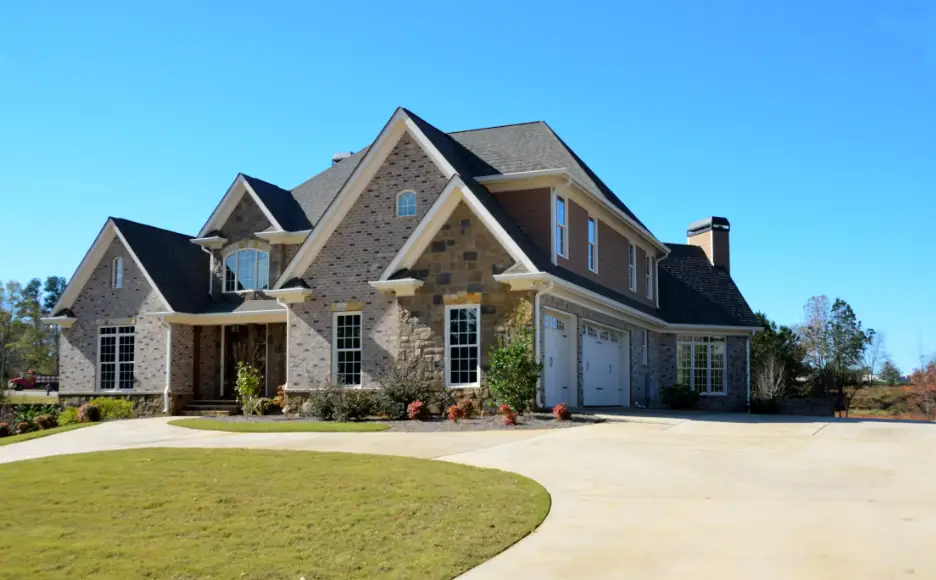
A house is a single family dwelling unit with four walls and a roof, built on its own lot. Houses often have several rooms for living, eating, sleeping, or other activities. They may also have an attached garage and outdoor space such as porches, patios, and gardens.
Pros of Houses
Houses offer more space, privacy, and stability compared to townhouses. In general, houses are typically larger than townhouses and because they sit on their own lot or piece of land, you won’t have to worry about neighboring walls or common areas like with a townhouse. Additionally, houses often come with a large backyard or other outdoor living space, allowing you to customize and create your own outdoor oasis. Houses also tend to appreciate in value faster than townhouses due to their unique features such as land size and location, making them a great option for individuals looking for long-term investments.
Cons of Houses
Houses are more expensive and require larger down payments than townhouses. They also come with higher maintenance costs since there is more square footage to take care of and maintain. Houses may also be subject to additional regulations or zoning laws, depending on where they are located and what their purpose is, which can lead to some restrictions on how the property can be used. Lastly, the size of a house can make it more difficult to sell in the future, especially if there is no demand for large homes in your area. [2]
Difference Between Townhouse vs. House?
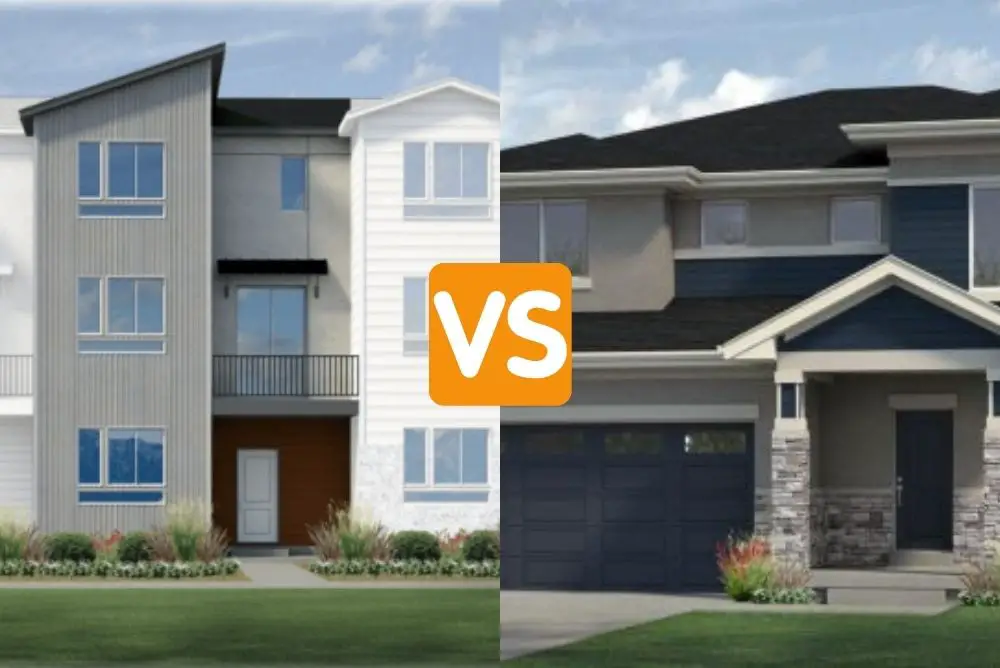
When it comes to deciding between a townhouse and a house, there are many different factors that come into play. It is important to consider your lifestyle, budget, and the amount of space you need when choosing which type of home would work best for you.
Building Style and Type
The biggest difference between a townhouse and a house is their building style and type. Townhouses are typically row houses that are connected to each other; they share walls with neighboring townhouses. They also have limited outdoor space, if any at all. On the other hand, houses stand alone and don’t share walls with any other buildings. They often have a front and back yard, as well as other outdoor spaces like decks or patios.
Size and Room Dimensions
When it comes to interior space, there are a few key differences between townhouses and houses. Townhouses typically have more rooms than other types of homes since they’re often built in multi-level layouts and can include additional living spaces like basements or attics. As such, their room dimensions may be smaller than that of a house, as they’re usually meant to maximize the amount of interior space available. Houses typically feature larger rooms than townhouses but can still come in varying sizes and layouts depending on their location and features.
Amenities and Features
When comparing a house vs. townhouse, amenities and features are important considerations to take into account. While the size of the unit is often smaller in a townhouse, they can still provide plenty of luxurious amenities that you may not find in other homes. In some cases, townhouses might offer private ground-level patios, attached garages, and multiple stories. Whether you live in a house or townhouse, you may have access to amenities like community pools and tennis courts. Depending on the area, some townhouses even offer convenient access to public transportation and other services.
Maintenance
When it comes to maintenance, townhouses and houses have some key differences. At a house, all of the responsibility for repairs and upkeep falls on you as the homeowner. On the other hand, with a townhouse, many issues like common area landscaping or roof replacement are typically shared among neighbors in an association. This means that you’re not solely responsible for the costs associated with those repairs, and you don’t have to worry about maintaining your home’s exterior.
Costs
When it comes to costs, townhouses are typically much more affordable than single family homes. Not only do they have a smaller square footage, but they also cost less in terms of property taxes and insurance rates. In addition, many townhouses come with lower maintenance fees which can help you save money over the long-term.
Independence
The most significant difference between buying a townhouse and a house is the sense of independence that comes with each. Owning a house typically means more freedom, as you won’t have any homeowners association rules to follow or shared walls with your neighbors. As for townhouses, you will usually be subject to HOA rules and regulations as well as the potential for shared walls. However, this can depend on the individual community and its policy – some associations might offer more freedom than others. When it comes to ownership, a house gives you full autonomy over your space and any changes or renovations you want to make, while a townhouse has more limitations due to being part of a complex. [3]
Which One Is Best For You?
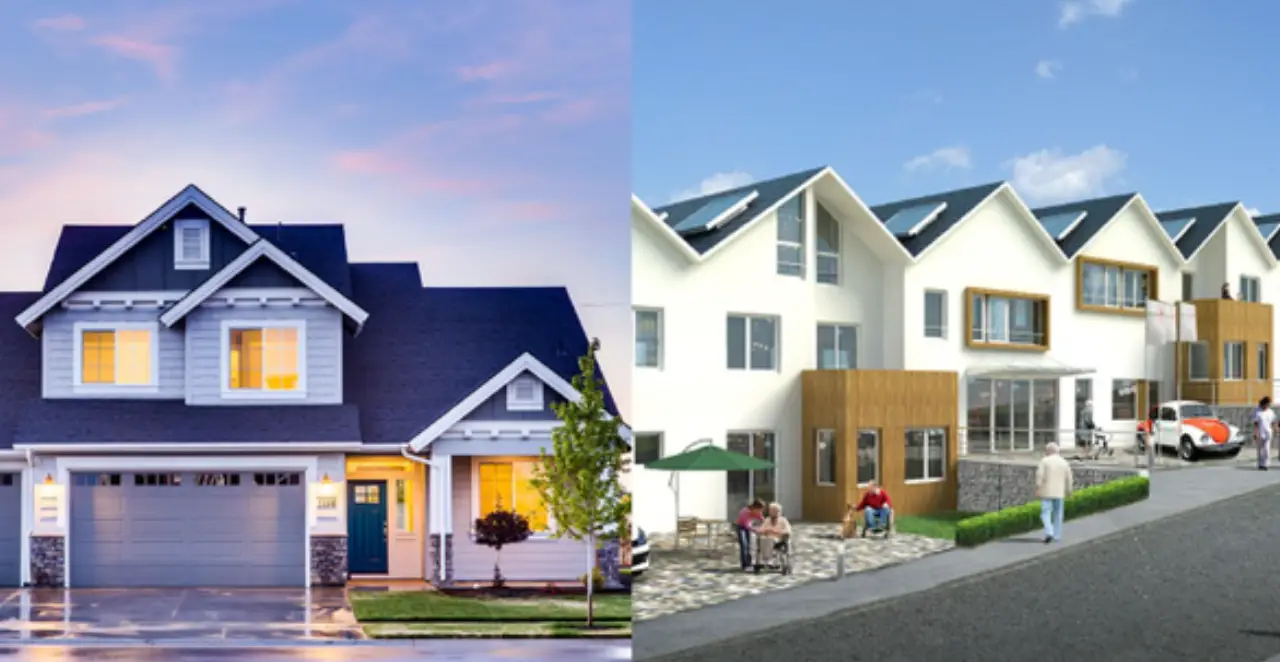
When it comes to deciding which is the best option for you, there are a few things to consider.
The first thing to take into account is space. Townhouses come with common walls, making them more affordable and typically smaller than free-standing houses. If size matters to you, then a townhouse may not be the best option.
Townhouses are often found in densely populated urban areas, whereas houses can be found in both suburban and rural locations.
Price is another major consideration when it comes to townhouses vs. houses. Generally speaking, townhouses are cheaper than houses due to their smaller size and common walls. However, townhouses can still be costly depending on the area in which they’re located.
Finally, you should also consider maintenance when making a decision between buying a townhouse or house. Townhouses are often subject to rules set by homeowner associations, meaning that some repairs may require approval from the HOA before they can be completed. On the other hand, with a house, you’ll have more control over maintenance and repairs. [4]
FAQ
What are the disadvantages of living in a townhouse?
Living in a townhouse can have some disadvantages. These include: sharing walls with other units, hearing noise from neighbors living close by, and limited outdoor space. Townhouses usually come with HOA fees that you’ll need to pay monthly or annually. Another potential disadvantage is the lack of privacy as you may have visitors coming and going close to your unit. Additionally, townhouse complexes may have restrictions or rules that you will need to abide by.
What is a townhouse vs a house in the UK?
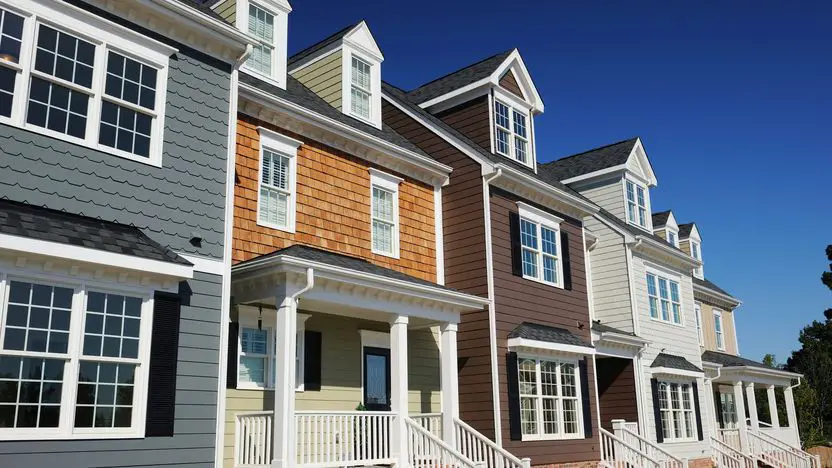
A townhouse, in the UK, is a type of dwelling that typically consists of three or more storeys built as part of an urban terrace. They usually share at least one side wall with their neighbours and can either be attached to other dwellings or detached. The main difference between a townhouse and a house in the UK is that the townhouse is usually smaller than a house and has fewer facilities and amenities. Townhouses are usually found in densely populated areas, such as cities or large towns where space is limited. They tend to be more affordable than detached houses and can offer a cosy environment with easy access to local amenities. Townhouses also come with their own set of rules, regulations and maintenance obligations that differ from those in a detached house.
What is the difference between a townhouse and a detached house?
The primary distinction between a townhouse and a detached house is the location. A townhouse is typically part of a development or complex, while a detached house sits on its own lot with no other homes directly attached to it. Townhouses often share walls with neighboring units, whereas detached houses are completely separate from any other buildings.
Why is it called a townhouse?
A townhouse is a type of building that is in close proximity to other buildings, and is usually part of a row or terrace. The term “townhouse” originates from the original purpose of these buildings:
providing housing for people living in crowded cities during the 18th and 19th centuries. They are typically two-story buildings that are narrower than a regular house and take up less space, making them ideal for city living.
Why is living in a townhouse better?
One of the main advantages to living in a townhouse is that you typically have more space than an apartment without as much maintenance and upkeep. Townhouses tend to be larger than apartments, with multiple floors of living space, which makes them ideal for families or anyone who needs more room.
Townhouses often come with at least one outdoor patio or
balcony, giving you access to fresh air and sunshine.
In addition, many townhouses have amenities such as a swimming pool or community center which can be beneficial for those looking for more social activities. Another benefit of living in a townhouse is that they are often located in safer areas than apartments. Townhouse developments tend to have better security, making it a safer place to live. Lastly, townhouses usually come with their own garage or parking spot, so you don’t have to worry about looking for parking when you get home. When compared to a house, living in a townhouse can be more economical.
Townhouses often have lower monthly costs than houses due to their smaller size. They are also easier to maintain, as townhouse owners can outsource many of the necessary repairs and maintenance tasks to the homeowner’s association or property management company.
Townhouses can be a great option for those who want more space than an apartment and more convenience than a house at a lower price point.
Why do Townhomes not appreciate?
Townhouses are generally seen as less desirable to own than single family homes, and this can have an effect on appreciation. Townhomes don’t appreciate as quickly or as much as single family homes because they lack the privacy, lot size and ownership features that make houses more attractive.
Also, townhome communities usually have fees associated with ownership that are passed on to the homeowner, like HOA fees and maintenance fees. These extra costs can also put downward pressure on a townhome’s appreciation rate. That said, there are still benefits to owning a townhome that may make it worth considering. Generally speaking, they require less upkeep than single family homes as landscaping, snow removal, and other exterior maintenance services are taken care of by the HOA.
Townhomes also offer more affordable options for those looking to buy in a desirable area that might be out of reach if buying a single family home.
Is a townhouse a poor investment?
The short answer is that it depends. Generally speaking, a townhouse may be a good investment because it often has lower upfront costs than buying and maintaining a single family house. Townhouses can also offer potential buyers more amenities and convenience due to their close proximity to other homes, such as shared lawns or access to a pool. On the other hand, townhouses can also be less desirable to buyers because they typically have smaller yards and the spaces are often closer together.
Additionally, townhouse owners may be subject to additional fees or dues associated with the shared amenities. Overall, it’s important to carefully weigh the pros and cons of each option before deciding whether a townhouse is the right investment for you.
Can you hear neighbors in townhouses?
The answer to this question depends on many factors, such as the layout of the townhouses and the sound-proofing materials used. Generally speaking, however, it is more likely that you will hear your neighbors in a townhouse than in a house. Townhouses are typically built closer together, with shared walls and ceilings between units. Soundproofing materials, such as drywall, insulation, and noise-reducing windows may help to dampen the sound of your neighbors. However, even with these materials in place, you will likely still hear some level of noise from adjacent units. You may be able to reduce this by sealing gaps around doors and windows or installing thicker windowpanes.
What are the 3 types of property?
The three most common types of property are single-family homes, townhouses, and condominiums. A single-family home is an individual unit or structure that stands alone on a lot or piece of land, typically surrounded by a yard and other outdoor space. Townhomes, also known as townhouses or rowhouses, are attached units that often look like a single-family home but share one or more walls with a neighboring unit. Condominiums, also known as condos, are units within a larger building or complex that are individually owned and can be located on the ground floor or up several floors.
How many bedrooms does a townhouse have?
Generally speaking, townhouses tend to have two or three bedrooms. However, some larger townhouses may be designed with up to four or more bedrooms. Townhomes are often smaller than traditional single-family homes and can offer a good alternative for families seeking more space than an apartment offers but less square footage and outdoor maintenance than a house.
Useful Video: Condo vs House vs Townhouse | Which Type of Real Estate Should You Purchase? | First Time Home Buyer
Conclusion
When deciding between a townhouse and a house, there are many important factors to consider. Both options offer different levels of privacy and amenities depending on the location, size, and cost. Townhouses usually have a lower cost than detached houses but may not provide as much space or freedom from neighbors. On the other hand, houses tend to be more expensive and provide more space, but could be harder to maintain. Ultimately, the decision will depend on your lifestyle, budget and needs as a homeowner.
References
- https://www.westlinevillage.com/townhouse-vs-single-family-whats-right-for-me/#:~:text=Perhaps%20the%20most%20obvious%20difference,also%20belongs%20to%20the%20homeowner.
- https://justo.ca/blog/townhouse-vs-house-everything-you-need-to-know
- https://www.thebalancemoney.com/townhouse-vs-house-what-s-the-difference-5205018
- https://www.investopedia.com/articles/real-estate/082516/condo-vs-townhouse-vs-house-which-right-you.asp





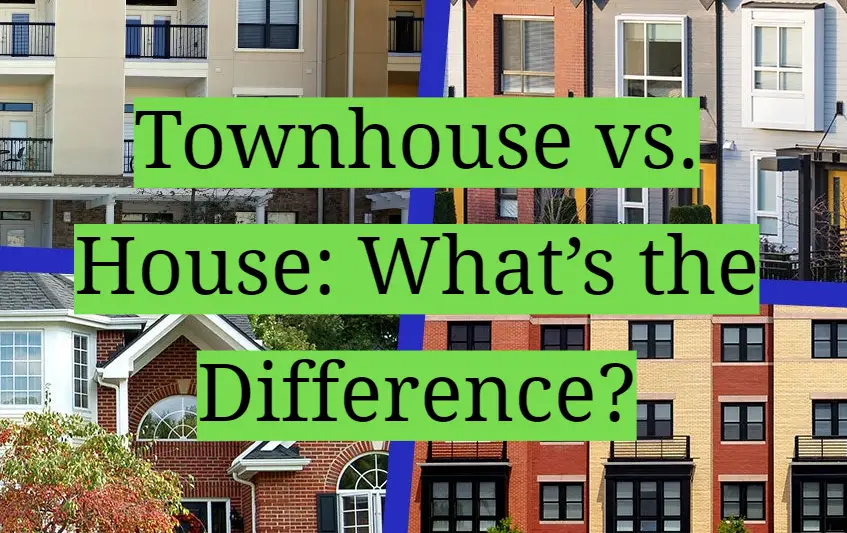




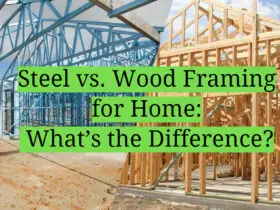
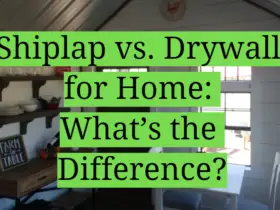

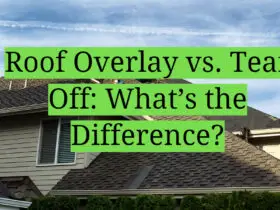
Leave a Reply